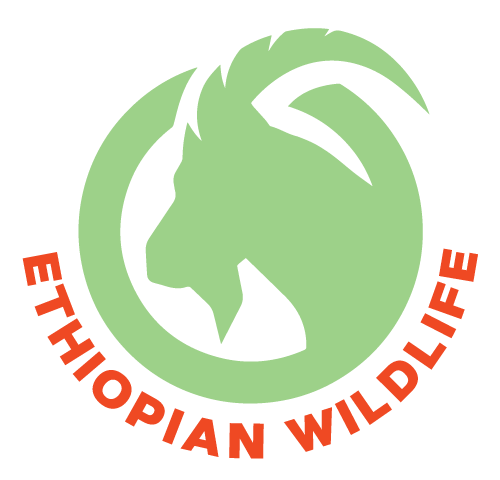Awash National Park, an expansive expanse spanning 756 square kilometers, lies approximately 211 kilometers to the east of Addis Ababa. Its nomenclature is derived from the Awash River, which serves as its southern demarcation, while its final offering takes the form of the salt lake, Lake Abbe, positioned along the Ethiopia-Djibouti border.
The park offers exceptional opportunities for serious birdwatchers as well as respectable chances to observe a wide variety of fauna. Moreover, a captivating assortment of volcanic topography awaits exploration.
Roaming the open expanses, one may chance upon remarkable creatures, including the Greater and Lesser Kudus, the diminutive salt Dik-Dik, the endemic Swayne’s Hartbeest, the Beisa Oryx, the Sommering Gazelles, and the Defarsa waterbuck. Near the riverbanks, encounters with the Anubis and Hamadryas monkey species are plausible. Colobus monkeys, on the other hand, tend to inhabit the drier regions, while Grivet monkeys find their abode in the riverine stretches. Elusive sightings of lions, leopards, black-backed and golden jackals, servals, caracals, and wildcats further heighten the intrigue within the park’s boundaries.
The avian population boasts an impressive catalogue of 462 species, as documented up until 2003. Notably, the Golden-Backed Woodpecker, the Banded Barbet, the White-Winged Cliff Chat, the Thick-Billed Raven, the White-Tailed Starling, and the Wattled Ibis represent a selection of noteworthy endemic representatives. The park serves as a haven for diverse bustard species, while the grassy plains serve as a sanctuary for magnificent secretary birds. For a feast of avian diversity, one needs to venture to the camping grounds nestled by the Awash River’s banks or the enchanting Filwoha Hot Spring regions, where sightings of the Emerald-Spotted Wood Dove, Red and Yellow Barbets, Green Wood Hoopoes, and Carmine Bee-Eaters are a certainty.
Among the park’s prominent features, the awe-inspiring Fentale Volcano commands attention. The visible scars etched upon its southern slopes serve as a testament to the lava’s last descent in 1820. Another attraction lies in the park’s natural hot springs, discreetly tucked away in the distant northern reaches. Within their turquoise-blue pools, glimpses of Hamadryas baboons and waterbucks are granted, while the distant reverberations of nocturnal lions complete the evocative ambience.
Best Time to Visit Awash National Park
To make the most of your visit, it’s crucial to consider the best time to explore Awash National Park. The dry season, which spans from October to March, offers optimal conditions for wildlife viewing. During this time, animals gather around water sources, making it easier to spot them. The temperatures are pleasant, ranging from 20 to 30 degrees Celsius, and rainfall is minimal. However, if you’re interested in birdwatching, the wet season from April to September brings migratory birds and lush greenery, adding a different dimension to your experience.
How to Get to Awash National Park
Reaching Awash National Park is an adventure in itself. If you’re traveling internationally, the most convenient option is to fly into Addis Ababa, the capital of Ethiopia. From there, you can embark on a scenic drive to the park, covering a distance of approximately 211 kilometers to the east. Alternatively, public transportation, such as buses or shared taxis, can be used for the journey. Private car hires are also available for those seeking more flexibility and comfort.
Where to Stay in Awash National Park
Awash National Park offers a range of accommodation options to suit various preferences and budgets. The park itself boasts campsites where you can immerse yourself in nature, surrounded by the sounds of the wilderness. These campsites often provide basic facilities such as toilets, showers, and cooking areas. For those seeking more comfort, there are lodges and resorts in the vicinity of the park that offer cozy rooms, delicious meals, and additional amenities. Some popular choices include XYZ Lodge, ABC Resort, and PQR Campsite.
What to Pack for a Trip to Awash National Park
When packing for your adventure in Awash National Park, it’s essential to be prepared for the unique environment and activities you’ll encounter. Here are some must-pack items:
- Lightweight and breathable clothing: Opt for comfortable, moisture-wicking clothing suitable for the park’s warm temperatures. Long-sleeved shirts and trousers are recommended for protection against insects and the sun.
- Sturdy walking shoes: Ensure you have comfortable footwear for walking and hiking on uneven terrain.
- Binoculars and camera: Capture the stunning wildlife and landscapes of Awash National Park. Binoculars will enhance your birdwatching experience.
- Sun protection: Pack sunscreen, a hat, and sunglasses to shield yourself from the strong African sun.
- Insect repellent: Protect yourself from mosquitos and other insects by bringing an effective repellent.
- Medications and first aid kit: Carry any necessary medications, as well as a basic first aid kit for minor injuries or ailments.
- Reusable water bottle: Stay hydrated by carrying a reusable water bottle and refill it at designated spots within the park.
- Snacks and water: Pack some energy-boosting snacks and water for the journey and during your explorations.
- Travel insurance and necessary documents: Don’t forget to carry your travel insurance details, passport, and any required permits or tickets.
Safety Tips for Visiting Awash National Park
-
Follow park regulations: Respect the rules and regulations set by Awash National Park. These guidelines are in place to ensure both your safety and the preservation of the park’s delicate ecosystem. Familiarize yourself with the park’s guidelines regarding wildlife interaction, waste disposal, and designated hiking trails.
-
Hire a local guide: Consider hiring a knowledgeable local guide who can enhance your experience and provide valuable insights into the park’s flora, fauna, and cultural significance. A guide can also navigate the terrain more effectively, ensuring your safety throughout your journey.
-
Wildlife encounters: When observing wildlife, maintain a safe distance and avoid disturbing or approaching animals. Always remember that you are a guest in their natural habitat. Respect their space and behavior, and never attempt to feed or touch them.
-
Stay hydrated and carry essentials: The African sun can be intense, so it’s crucial to stay hydrated. Carry sufficient water and drink regularly to prevent dehydration. Additionally, keep snacks on hand to maintain energy levels during your explorations.
-
Be prepared for outdoor activities: Awash National Park offers various outdoor activities such as hiking and wildlife viewing. Before embarking on these adventures, ensure you are physically prepared and have appropriate gear, including sturdy footwear, rain gear, and suitable clothing for the prevailing weather conditions.
-
Communicate your plans: Inform someone trustworthy about your itinerary, including your expected return time and contact information. In case of any unforeseen circumstances, it’s essential to have someone who can raise the alarm if needed.
-
Be cautious of potential hazards: While Awash National Park is relatively safe, it’s wise to be cautious of potential hazards such as uneven terrain, slippery rocks near water bodies, or encounters with venomous snakes. Stay on designated trails and avoid risky behaviors to minimize the risk of accidents.
-
Carry a mobile phone and emergency supplies: Keep a fully charged mobile phone with you at all times for communication purposes. Additionally, carry essential emergency supplies like a flashlight, whistle, and basic first aid kit to address any unforeseen situations.


